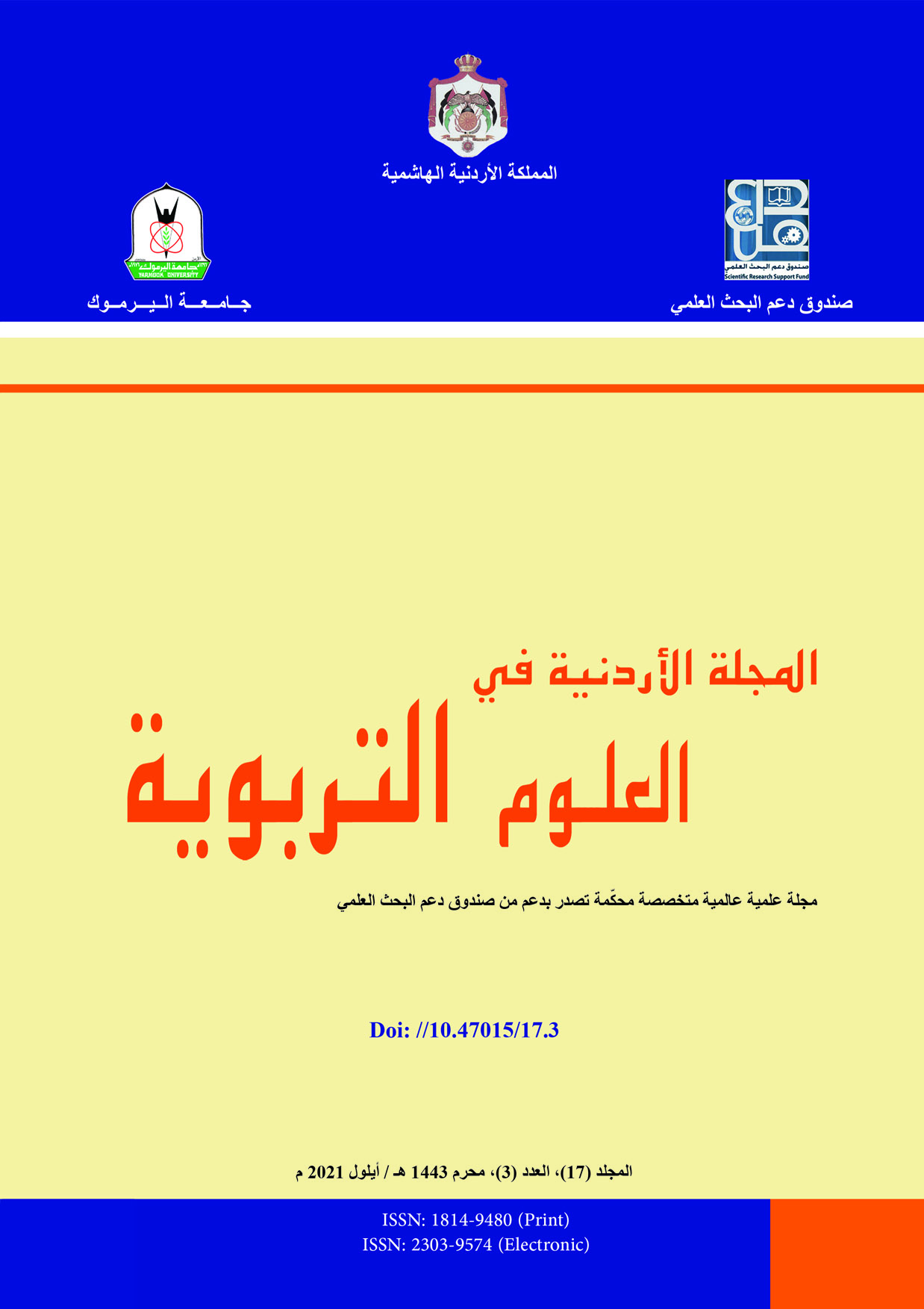الخصائص السيكومترية للصورة المع ربة لاستبيان "ويكمان" للذكاء الانفعالي
الكلمات المفتاحية:
الخصائص السيكومترية، الذكاء الانفعالي، إدارة الذات غير المعرفية، البراعة الاجتماعيةالملخص
هدفت هذه الدراسة إلى تطوير صورة مع ربة لاستبيان "ويكمان"
للذكاء الانفعالي عند طلبة المرحلة الج امعية في الأردن ، Wakeman
والتحقق من فاعلية فقراته ودلالات صدقه وثبات ه. تك ونت عينة الدراسة
من ( 620 ) طالباً وطالبة من الطلبة المسجلين في جامعة آل البيت في
2008 في مختلف المستويات الدراسي ة. / الأردن للعام الدراسي 2007
وقد أمكن التحقق من فاعلية فقرات الاستبيان حيث أشارت النتائج إلى أن
الفقرات تتمتّع بمؤشرات تمييز مقبولة، وتمتد على متّصل الصعوبة بصورة
مقبولةً أيضاً. وللتوصل إلى مؤشرات حول صدق البناء للاستبيان، ت م
إخضاع البيانات للتحليل العاملي، واختبار دلالة الفروق بين متوسطات أداء
أفراد الدراسة المختلفة على بعدي الاستبيان في المستويات الدراسية
الأربعة، بالإضافة إلى اختبار العلاقة بين درجات الأفراد على بعدي
الاستبيان والتحصيل الأكاديمي معبراً عنه بالمعدل التراكمي للطالب . وقد
أسفرت نتائج التحليل العاملي عن وجود عاملين اثنين هما عامل إدارة
الذات غير المعرفية وعامل البراعة الاجتماعية. وأسفرت نتائج تحليل
التباين الثنائي عن وجود فروق ذات دلالة إحصائية بين متوسطات درجات
الأفراد على كل بعد من بعدي الاستبيان تُعزى لمتغير المستوى الدراسي .
كما أشارت النتائج إلى وجود علاقة ذات دلالة إحصائية بين درجات أفراد
الدراسة على كل بعد من بعدي الاستبيان والتحصيل الأكاديمي. وتبين
أيضاً أن الاستبيان يتمتع بدلالات ثبات مرتفعة كما تعكسه معاملات
الاتساق الداخلي ومعاملات الاستقرار لكل بعد من بعدي الاستبيان.

